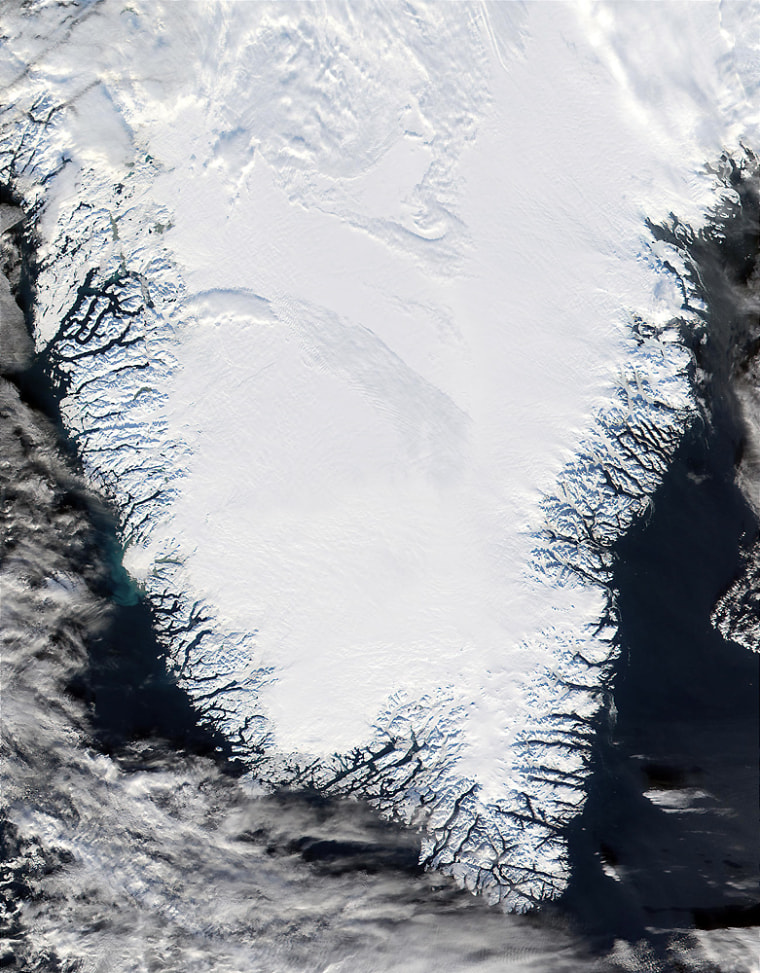Ice losses now far surpass ice gains in the shrinking Greenland ice sheet, an annual net loss six times the water flow from the Colorado River, NASA scientists reported Thursday after analyzing satellite data.
Greenland's low coastal regions lost 155 gigatons, or 41 cubic miles, of ice per year between 2003 and 2005 from excess melting and icebergs, while the high-elevation interior gained 54 gigatons, or 14 cubic miles, a year from excess snowfall, scientists at NASA's Goddard Space Flight Center in Greenbelt, Md., reported in the journal Science.
"With this new analysis we observe dramatic ice mass losses concentrated in the low-elevation coastal regions, with nearly half of the loss coming from southeast Greenland," lead author Scott Luthcke said in a statement.
"In the 1990's the ice was very close to balance with gains at about the same level as losses," he added. "That situation has now changed significantly, with an annual net loss of ice equal to nearly six years of average water flow from the Colorado River."
Continued monitoring is needed to determine whether this ice loss is a long-term trend, the authors stated.
The results show that Greenland is now losing 20 percent more mass than it receives from new snowfall each year, the team added.
"This is a very large change in a very short time," said co-author Jay Zwally. "In the 1990's, the ice sheet was growing inland and shrinking significantly at the edges, which is what climate models predicted as a result of global warming. Now the processes of mass loss are clearly beginning to dominate the inland growth, and we are only in the early stages of the climate warming predicted for this century."
Although the ice mass loss observed in the study is less than half of what other recent research has reported, the team said their analysis technique was improving what scientists know about the ice.
"With this new detailed view of the Greenland ice sheet, we have come a long way toward resolving the differences among recent observations and what we know about how the ice sheet behaves," said co-author Waleed Abdalati. "A consistent picture from the different data sets is emerging."
